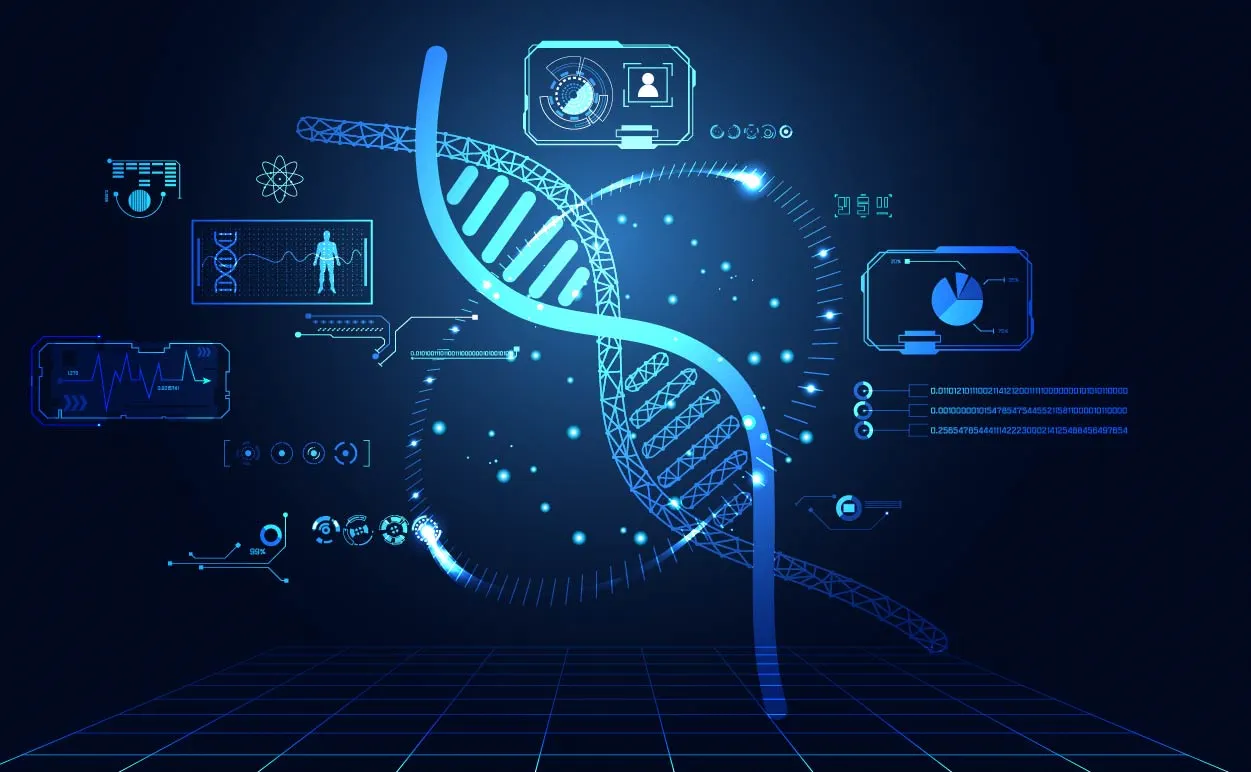

Cosmox Blogs
The Role of AI in Healthcare: Transforming Medicine and Saving Lives
Imagine a world where machines don’t just calculate numbers but actively help doctors diagnose diseases, predict outbreaks, and even suggest treatments based on thousands of case histories. The concept may sound like something from a futuristic novel, but it’s already happening! Artificial Intelligence (AI) is diving into the world of healthcare, revolutionizing how we detect, treat, and manage health conditions.
In this fast-paced, tech-driven era, AI is proving to be an invaluable ally to doctors, nurses, and patients alike. It’s like having a super-smart assistant by your side, making healthcare more efficient, accessible, and accurate. But, as with any powerful technology, there’s a balance to be struck between its benefits and its limitations.
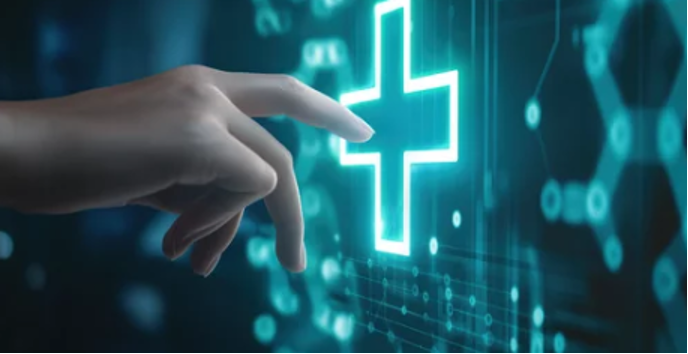
Let’s dive into the amazing (and occasionally controversial) ways AI is reshaping healthcare.
AI in Diagnostics: Faster and More Accurate
One of the most incredible contributions of AI in healthcare is its ability to enhance diagnostics. Traditional diagnosis often relies on a doctor’s knowledge, experience, and sometimes even guesswork. But AI can analyze tons of medical data, picking up patterns that even the sharpest human eyes might miss.
Radiolog & Imaging
AI has made huge strides in radiology, where it can analyze medical images like X-rays, MRIs, and CT scans with astonishing accuracy. AI models like Google’s DeepMind and IBM’s Watson Health are trained to identify abnormalities, including tumors, fractures, and even internal bleeding. With AI, radiologists can now receive “second opinions” in seconds, reducing the time it takes to interpret images.
Early Disease Detection
AI is also used for predicting diseases based on a patient’s history. Imagine a patient who shows early signs of Alzheimer’s or Parkinson’s disease. AI algorithms can study subtle changes over time in brain scans, flagging them earlier than traditional diagnostic methods. Early detection means earlier treatment and, in many cases, better patient outcomes
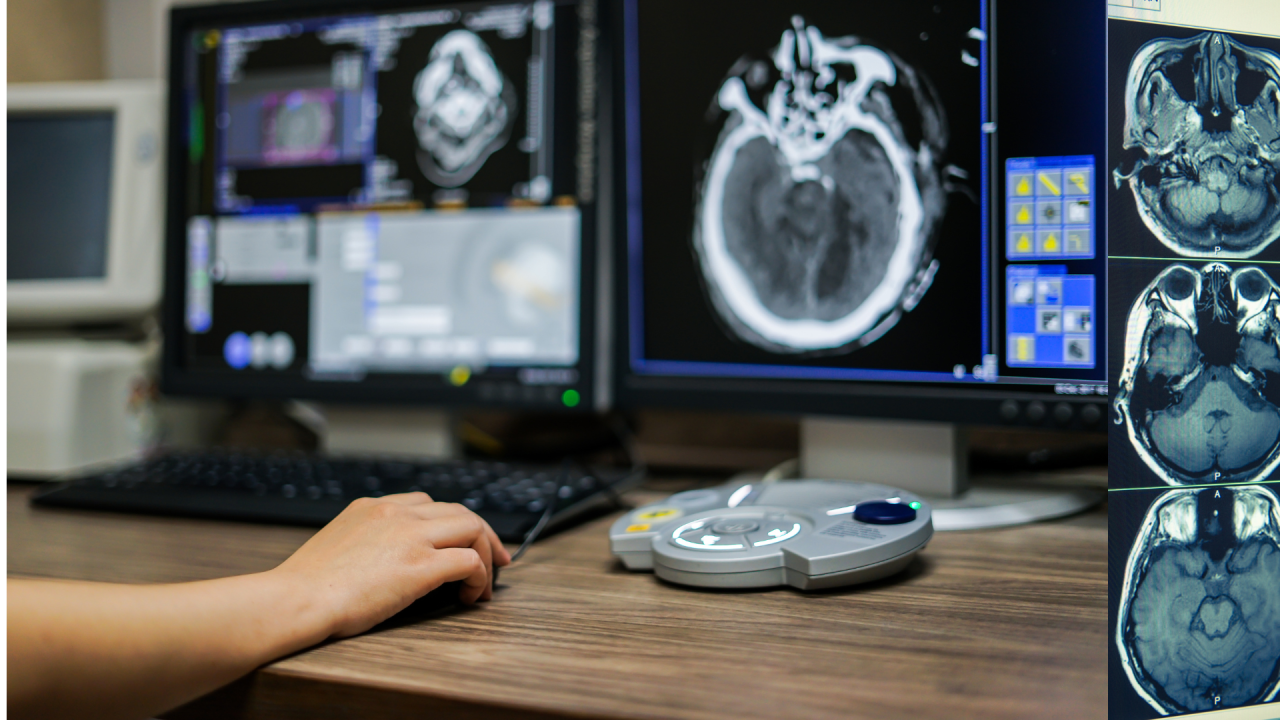
Treatment Recommendations: Personalized Medicine
AI isn’t just diagnosing patients—it’s actively shaping their treatments. One of the most game-changing benefits of AI in healthcare is personalized medicine.
Tailored Treatment Plans
When doctors face complex cases, AI systems like IBM Watson for Oncology come in handy. Watson scans thousands of medical studies, case histories, and clinical trials, providing doctors with data-backed treatment options specifically tailored to the individual. For example, two patients with the same type of cancer might receive different treatment plans based on genetic factors, lifestyle, and previous medical history - all insights gathered by AI.
Precision Medicine
In addition to personalizing treatment plans, AI also plays a role in precision medicine, which is all about targeting treatments based on genetic makeup. AI tools can predict how different people respond to medications, ensuring that patients receive the most effective drugs with the fewest side effects. This approach is already proving useful in fields like oncology and neurology.
Virtual Health Assistants: Healthcare Anytime, Anywhere
Have you ever imagined a healthcare system that’s accessible 24/7? Thanks to AI-powered virtual assistants, that vision is becoming a reality. These AI assistants can provide basic medical advice, set reminders for medication, and even monitor health metrics, all without stepping foot into a clinic.
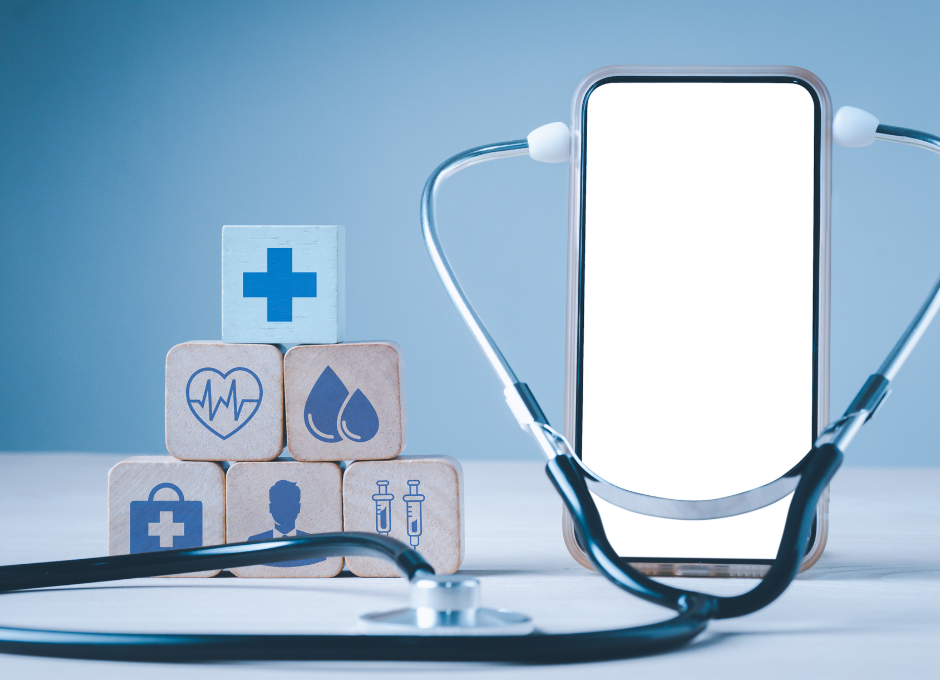
Virtual Nurse Assistants
Programs like Babylon Health and Ada Health are virtual nurse assistants that use AI to help patients manage their health from home. These apps ask a series of questions, analyze the symptoms, and suggest possible actions. Although they can’t replace doctors, they can offer initial guidance and make healthcare more accessible, especially for those living in remote areas.
Telemedicine and Remote Monitoring
AI also boosts telemedicine by enabling doctors to monitor patients remotely. This is a lifesaver for patients with chronic illnesses who need consistent care. AI-driven wearable devices like smartwatches can track vital signs (heart rate, blood pressure, oxygen levels), and if something seems off, an alert is sent directly to the healthcare provider. This allows doctors to keep an eye on their patients’ health from a distance, preventing complications before they even arise.
AI in Drug Discovery: Speeding Up Research
Developing new medicines is a time-consuming and costly process, often taking years of research and billions of dollars. AI is revolutionizing drug discovery by analyzing vast amounts of biological data and predicting which compounds might work for particular diseases.
Faster Development of Drugs
AI can process thousands of chemical combinations in mere days, something that would take humans months or even years. This rapid analysis has been crucial, especially during times of crisis, like the COVID-19 pandemic, where AI was used to search for potential drugs and vaccines faster than ever.
Repurposing Existing Drugs
AI is also helping researchers find new uses for existing drugs. For instance, medications developed for one disease may show promise in treating another condition. By scanning databases and research studies, AI can identify these opportunities, allowing for quicker and potentially more affordable treatments.
Benefits of AI in Healthcare: A Healthier World
AI’s role in healthcare comes with some extraordinary benefits. Here are some of the most impactful:
-> Increased Efficiency: AI speeds up processes, allowing healthcare providers to focus on urgent cases and reduce wait times. The result? Faster diagnosis, quicker treatment, and better patient outcomes
-> Cost Reduction: AI can help save costs by optimizing processes, from diagnostics to drug discovery. Hospitals spend less on diagnostics, allowing them to invest in more crucial services and resources
-> Improved Accessibility: For those living in remote or underserved areas, AI-powered health tools provide basic care and support. Virtual health assistants can reach places where healthcare professionals are scarce.
-> Higher Accuracy and Precision: With AI’s analytical power, diagnostic errors can be reduced. Machines can detect patterns in data that humans might miss, leading to more accurate results
-> Enhanced Patient Experience: AI enables personalized care, from tailored treatment plans to proactive monitoring. Patients feel more engaged and supported, making healthcare more holistic and satisfying.
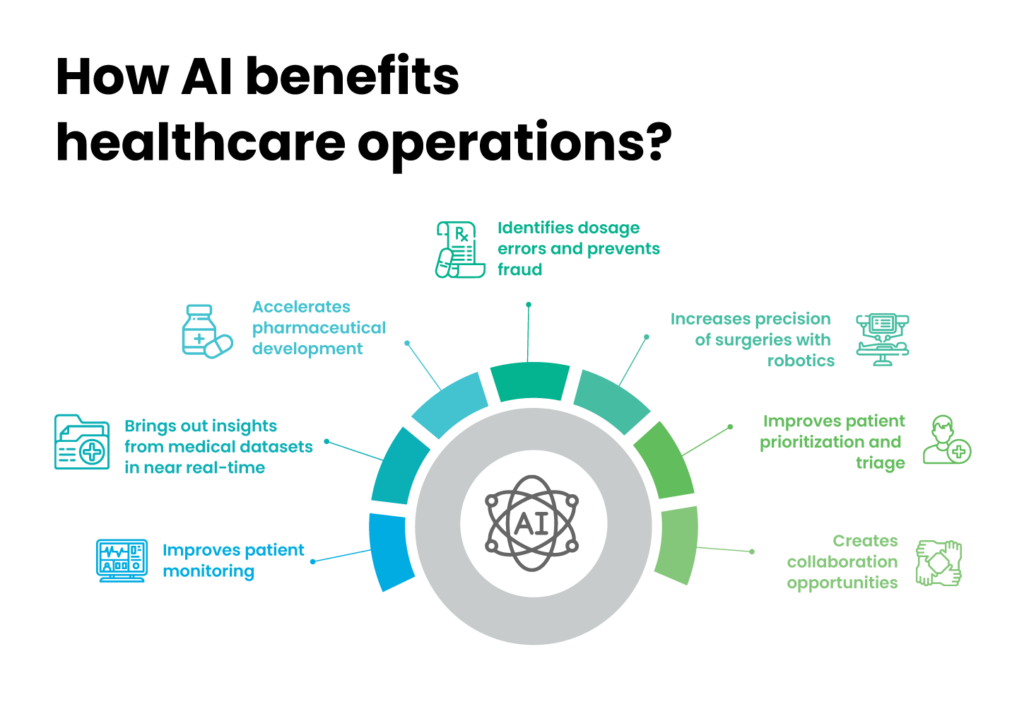
The Flip Side: Disadvantages and Challenges of AI in Healthcare
Despite its advantages, AI in healthcare isn’t without challenges. Here’s a look at some of the potential downsides:
Data Privacy and Security Concerns
AI relies heavily on data, and in healthcare, this means patient information. With sensitive data in AI systems, there’s a risk of breaches. If this information is mishandled, patients’ personal and medical information could be compromised.
Job Displacement in the Healthcare Sector
There’s a concern that AI could take over tasks traditionally done by humans, such as data entry, diagnostics, and even some aspects of patient care. While AI can’t replace doctors or nurses, it might affect jobs in administrative and support roles
Dependence on Technology
Over-reliance on AI can lead to a loss of human touch in healthcare. Patients may feel that they’re being treated by machines rather than people, which could reduce trust and personal connection in medical treatment.
Bias in AI Algorithms
AI systems learn from the data they’re trained on, which can sometimes lead to biased outcomes. For example, if an AI system is trained on data from a specific demographic, it may not work as accurately for others. This can lead to disparities in treatment and diagnoses
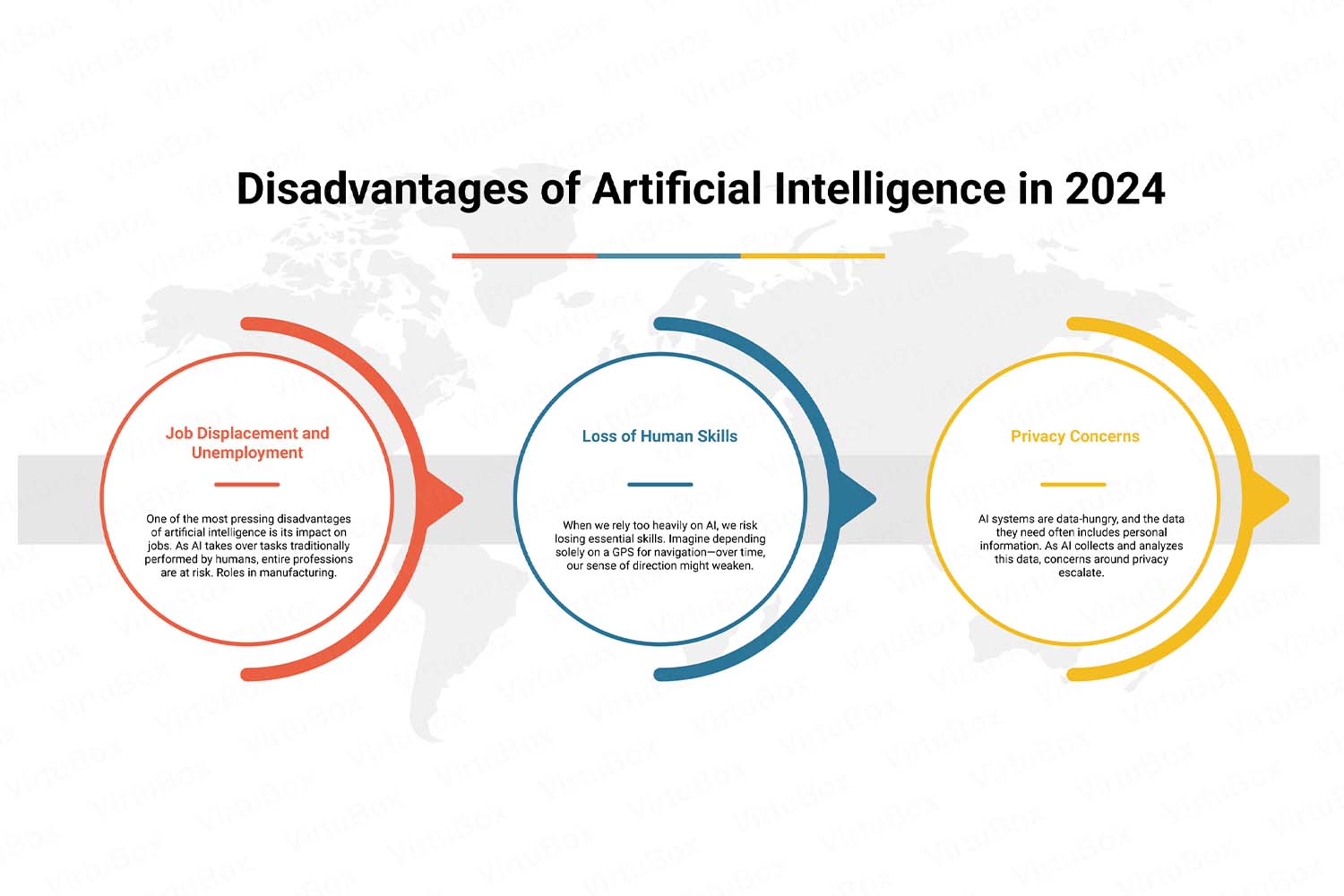
The Future of AI in Healthcare: A Balanced Partnership?
As AI continues to evolve, its role in healthcare will only grow. But the future of AI in this field depends on finding a balance between human expertise and machine intelligence. Ideally, AI should be a tool that enhances human care, not a replacement for it. By addressing challenges around privacy, security, and ethical use, we can shape a future where AI and healthcare professionals work side by side to provide the best possible care.
Imagine doctors and AI working together, each bringing unique strengths to the table. Doctors offer compassion, intuition, and experience, while AI provides data analysis, speed, and precision. Together, they can revolutionize the healthcare landscape, making it more effective, inclusive, and human-centered.
Conclusion: A Healthier World with AI?
AI in healthcare is more than just a trend—it’s a transformation. With AI, we’re moving toward a world where healthcare is faster, more accurate, and more accessible. It’s a world where patients can receive treatment tailored to their needs and where doctors can make informed decisions with the power of AI by their side.
But as we embrace this new era, we must also stay cautious. By addressing its challenges head-on, we can build a future where AI enhances human care without overshadowing it. If we strike the right balance, AI could indeed be the key to a healthier, brighter tomorrow.

Cosmox Blogs
A non profit organization that works on writing and delivering blogs on cosmology, natural sciences & environment, so that people can learn more about it. We even run a forums page, where our users interacts with each other and discuss about Cosmology, Natural Sciences & Astronomy. We even run an instagram and a youtube channel with podcasts.